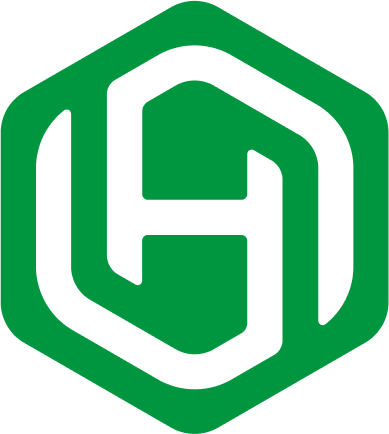Давайте обсудим ваш проект
Оставьте свои контакты и мы свяжемся с вами в течение рабочего дня.
Improving learning metrics using VR simulators (trainers)*
- Increase in final certification by an average of 26%
- Increasing the motivation for learning the material by 30%
- Reducing the number of errors in work by 25%
- Learning to get used to the VR experience in the first 5 minutes
- Teaching any number of students 24 hours a day
* Data based on research by PWC, FEFU
Get a cost estimate for developing a VR simulator
The list of industries in which VR simulators are most in demand:
Transport industry, logistics, manufacturing
Mining, chemical industry
Retail
Mining, chemical industry
Retail
Oil and gas, petrochemical industries
Medicine, training centers, research institutes
Banking sector
Medicine, training centers, research institutes
Banking sector
3 key types of VR simulators
for use in the above industries:
Soft Skills
Communication skills training (sales, negotiations, customer service)
Hard Skills
Practical skills training (work with equipment, production processes)
Safety training
Safety training (behavior in critical situations)
Application cases in Russia

"Russian Railways" process training in production
Problem:
It is difficult to train electromechanics. Railway tracks are under constant control of the control room, and the test facilities do not have all the sets of installations for training to work with them.
Decision:
Building a VR simulator for practical skills. Training takes place in a classroom under the supervision of an instructor. The simulator includes clones of real parts of railway tracks, with the necessary settings and situations to work out. Training takes place individually, as well as in groups of 2-4 people.
It is difficult to train electromechanics. Railway tracks are under constant control of the control room, and the test facilities do not have all the sets of installations for training to work with them.
Decision:
Building a VR simulator for practical skills. Training takes place in a classroom under the supervision of an instructor. The simulator includes clones of real parts of railway tracks, with the necessary settings and situations to work out. Training takes place individually, as well as in groups of 2-4 people.
"X5 Retail Group" - training of store employees
Problem:
It is necessary to train personnel in sales in remote stores on a massive scale and with a minimum budget.
It is necessary to teach the proficiency of the sales script, as well as evaluate skills and indicate weaknesses for further improvement.
Decision:
A VR simulator of communication skills has been developed. Training takes place in virtual reality glasses Oculus Go. There are several training programs and a certification program with voice recognition. The system provides analytics and overall score. The solution increases test results by 10-15%.
It is necessary to train personnel in sales in remote stores on a massive scale and with a minimum budget.
It is necessary to teach the proficiency of the sales script, as well as evaluate skills and indicate weaknesses for further improvement.
Decision:
A VR simulator of communication skills has been developed. Training takes place in virtual reality glasses Oculus Go. There are several training programs and a certification program with voice recognition. The system provides analytics and overall score. The solution increases test results by 10-15%.
"Russian Railways" - training of conductors
Problem:
It is necessary to massively train conductors in conflict management when interacting with clients. Practice is necessary in real conditions, and conflict situations are difficult to reproduce.
Decision:
A VR simulator of communication skills has been developed. Putting on a VR headset, an employee learns and works out scripts for interacting with clients in conflict situations. The employee learns how to properly respond to conflict and remain polite, thereby strengthening the company's reputation. The system independently evaluates employees, so training is accelerated and completely autonomous.
It is necessary to massively train conductors in conflict management when interacting with clients. Practice is necessary in real conditions, and conflict situations are difficult to reproduce.
Decision:
A VR simulator of communication skills has been developed. Putting on a VR headset, an employee learns and works out scripts for interacting with clients in conflict situations. The employee learns how to properly respond to conflict and remain polite, thereby strengthening the company's reputation. The system independently evaluates employees, so training is accelerated and completely autonomous.
"Sibur" - training in equipment repair
Problem:
It is necessary to teach how to work with equipment for the production of polyethylene, which is constantly loaded with real work and stops are unacceptable. New workers can learn to repair in just a few iterations of monitoring the repair process.
Decision:
Development of a VR simulator for practical skills. Putting on the headset, the employee gets acquainted with the equipment, learns the sequence of repair actions and learns to make decisions at crucial moments. Simulating real-life interactions gives you hands-on experience and allows you to start repairs in real life.
It is necessary to teach how to work with equipment for the production of polyethylene, which is constantly loaded with real work and stops are unacceptable. New workers can learn to repair in just a few iterations of monitoring the repair process.
Decision:
Development of a VR simulator for practical skills. Putting on the headset, the employee gets acquainted with the equipment, learns the sequence of repair actions and learns to make decisions at crucial moments. Simulating real-life interactions gives you hands-on experience and allows you to start repairs in real life.
Get a VR Simulator Customer Guide
- What is VR simulator?
- How should a company prepare for development?
- What is the VR simulator development process like?
- How to choose equipment?
- How do you communicate the value of the solution to management?

